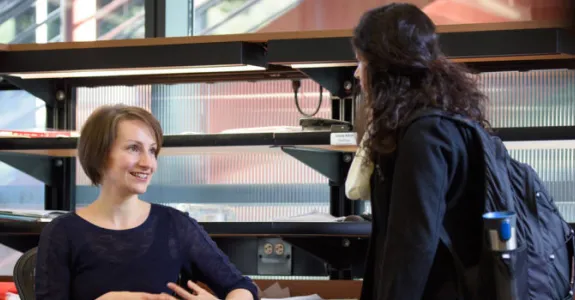
Dr. Kwabena Boahen founded and directs Stanford’s Brains in Silicon lab, which develops silicon integrated circuits that emulate the way neurons compute and computational models that link neuronal biophysics to cognitive behavior. This interdisciplinary research bridges neurobiology and medicine with electronics and computer science, bringing together these seemingly disparate fields.
Dr. Boahen's research interests include mixed-mode multichip VLSI models of biological sensory and perceptual systems, their epigenetic development, and asynchronous digital communication for reconfigurable connectivity. Dr. Boahen is using silicon integrated circuits to understand the way neurons compute, linking the seemingly disparate fields of electronics and computer science with neurobiology and medicine. His numerous contributions to the field of neuromorphic engineering include a silicon retina that could be used to give the blind sight and a silicon chip that emulates the way the juvenile brain wires itself up.
The Boahen lab is bridging the experiment–computation gap by building a computer that works like the brain - one that can serve as a tool to investigate brain function - feeding back and contributing to a fundamental, biological understanding of how the brain works. Technological developments in electrical engineering and computer science increasingly further the process of discovery in a variety of scientific fields, notably in the life sciences. Advanced technologies provide new tools to deepen the study of current problems in biology and neuroscience, but importantly can also enable a reformulation of the very approach taken towards answering these questions. Their research at the intersection of neurobiology and electrical engineering takes this technology-driven approach to scientific investigation by using existing knowledge of brain function to design an affordable supercomputer.








